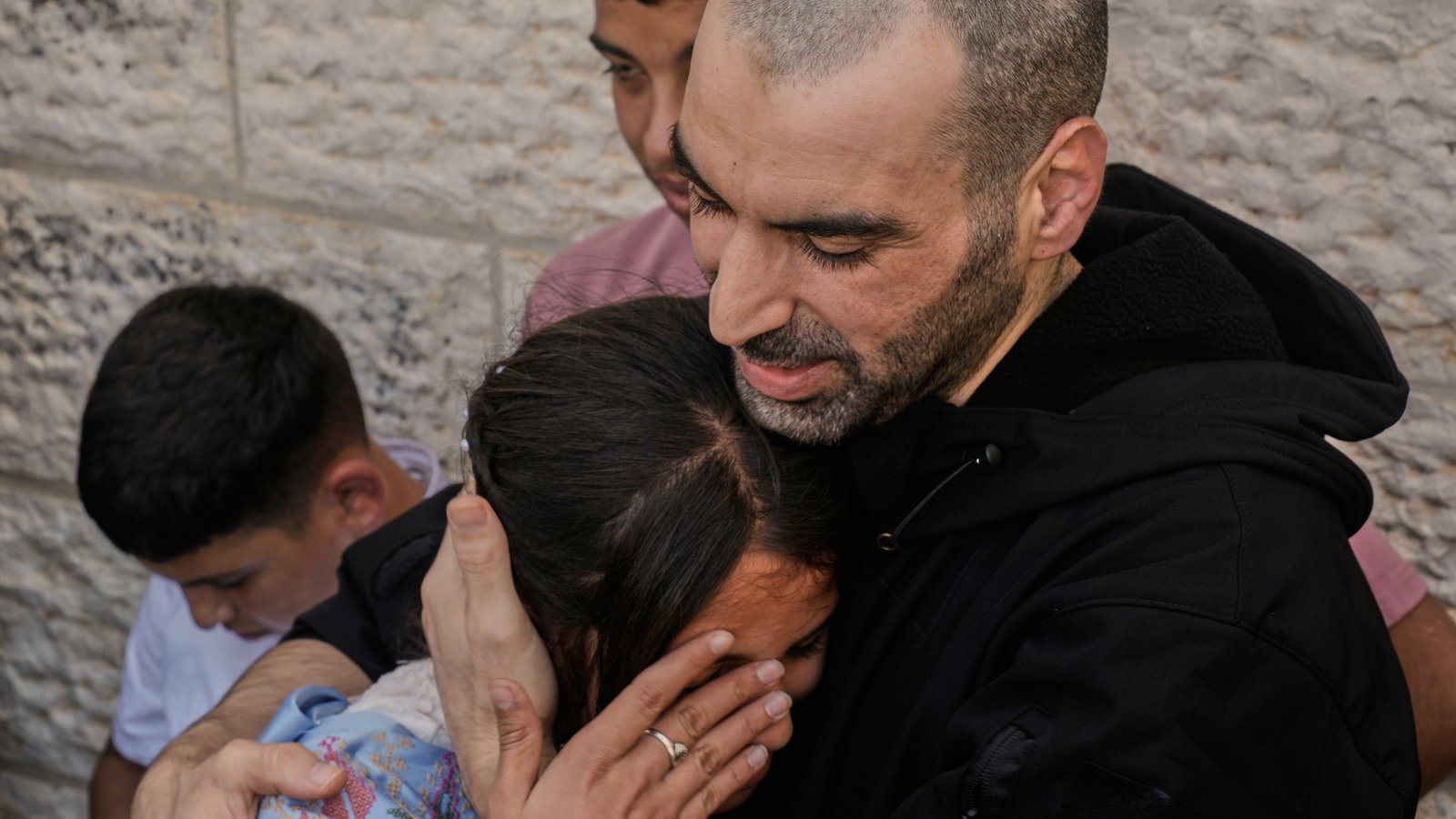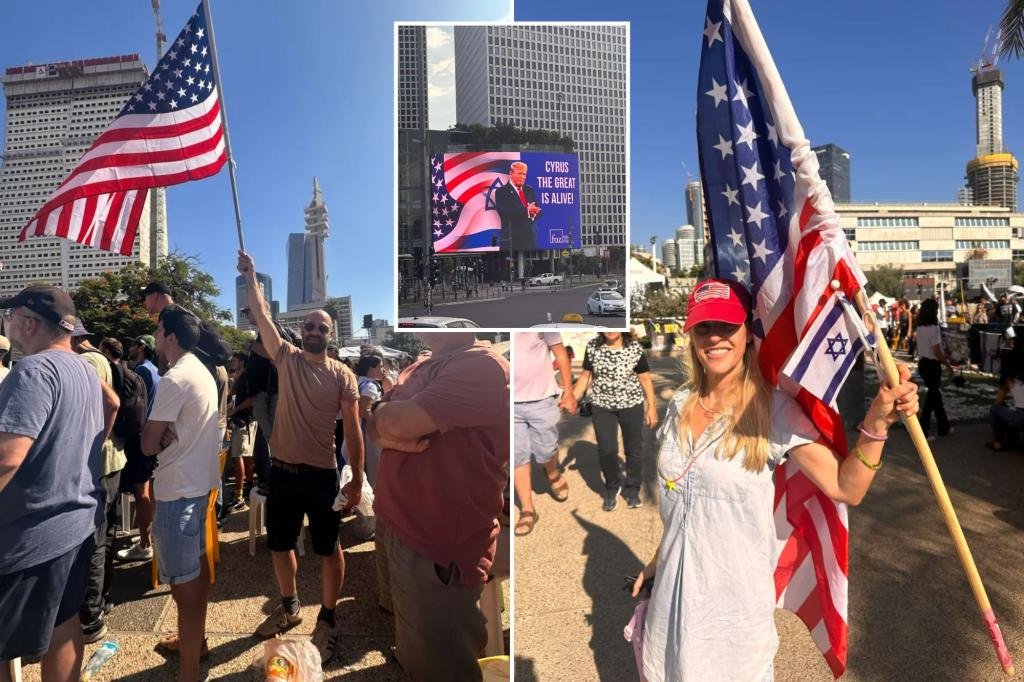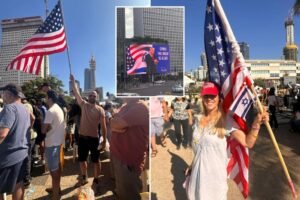
Palestinians celebrate Israel’s release of prisoners under the Gaza ceasefire agreement

Cheers rang out among Palestinians on Monday after Israel released nearly 2,000 prisoners under a Gaza ceasefire agreement that saw them exchanged for Israeli hostages freed by Hamas.
Large crowds received the liberated prisoners in Beitunia in the Israeli-occupied West Bank and in Khan Yunis in Gaza, waving victory signs as they got off International Committee of the Red Cross buses. In Beitunia, they were given traditional keffiyeh scarves as a show of national pride. Some were hoisted onto people’s shoulders. Others sank into chairs, exhausted.
"It has been a journey of unspeakable suffering – hunger, unfair treatment, oppression, torture and insults – beyond anything you could ever imagine." Kamal Abu Shanab (51 years old), a Fatah member from the city of Tulkarm in the West Bank, said.
His face was pale. He said he lost 139 pounds (59 kilograms) in prison.
"We don’t recognize him. He’s not the person we know. Our uncle does not look like our uncle" His niece Farah Abu Shanab said.
Among those released are about 1,700 of several thousand Palestinians captured by Israeli forces from Gaza during the two-year war and held without charge.
Also among those released are 250 Palestinians sentenced to prison, most of them convicted of deadly attacks on Israelis dating back decades, as well as others convicted of lesser charges, according to the Israeli Ministry of Justice. Of these, Israel exiled 154 people, sending them to neighboring Egypt, where officials said they would be sent to a third country.
The rest were returning to their homes in East Jerusalem, the West Bank and Gaza.
Deep moment
The releases resonate strongly on both sides.
For Israelis, it is extremely painful, because some of those released were convicted of attacks that killed civilians and soldiers. For Palestinians, the prisoner issue is politically charged. Almost everyone has a friend or family member who has been imprisoned in Israel, especially young people.
While Israel views the prisoners as terrorists, many Palestinians view them as freedom fighters resisting Israel’s decades-long military occupation. Reports from human rights groups detailing conditions in detention – including isolation, abuse and disease – have made prisoners prominent symbols of their people’s political struggle.
In Khan Yunis, thousands of people cheered and the sounds of gunfire rang out in celebration in the air. The liberated Palestinians left wearing gray clothes and entered the hospital for medical examinations.
Israeli forces arrested thousands of Palestinians during the war in raids on shelters, hospitals and at checkpoints, and prevented families from fleeing their homes amid military operations.

Families often had no idea that their relatives were being detained, and it often took months to determine whether they were being held by Israel, if confirmation came at all. Most of them were detained under laws passed by Israel at the beginning of the war that allowed Palestinians to be detained for several months "Unlawful combatants" Without judicial review or access to lawyers.
Human rights groups, the United Nations, and detainees have reported routine abuses in detention facilities, including beatings and inadequate food.
Israel says it adheres to prison standards under the law and investigates any reports of abuse.
Monday’s release still leaves about 1,300 Palestinians from Gaza in Israeli custody, according to a detainee count released by the Israeli human rights group Hamoked in September.
Warnings not to celebrate
The celebrations took place in the West Bank despite Israeli warnings against doing so. A post was circulated saying anyone supports what he called "Terrorist organizations" Risk of arrest.
The Palestinians had gathered on the hills overlooking Ofer Prison. An Israeli armored car drove up and fired tear gas and rubber bullets. As drones flew overhead, the crowd dispersed.
The Israeli army did not respond to questions.
Who’s on the list?
According to the list issued by Hamas, among the detainees released in Gaza were two women, six teenagers under the age of 18, and about 30 men over 60 years old.
The list of 250 released convicted prisoners, aged between 19 and 64, includes 159 belonging to Fatah, the political party that runs the Palestinian Authority in the West Bank, and 63 belonging to Hamas. The rest are unaffiliated or belong to other groups.
Many of them were arrested in the early 2000s, which saw the outbreak of the Second Intifada, a Palestinian uprising fueled by anger over the continued Israeli occupation despite years of peace talks. Palestinian armed groups carried out attacks that killed hundreds of Israelis, and the Israeli army killed several thousand Palestinians.
Some have been convicted in military trials that human rights advocates say often lack due process. Others languish in prisons for months or years without trial in what is known as administrative detention. Israel says the practice, widely criticized by Palestinians and human rights groups, is necessary to prevent attacks and avoid sharing sensitive intelligence.

The Hamas list did not include approximately six prominent prisoners, including Marwan Barghouti, Hassan Salama, Ahmed Saadat, and Abbas Al-Sayyed. Barghouti is widely seen as a potential successor to Palestinian President Mahmoud Abbas.
The list of released prisoners issued by Israel includes the following:
Raed Sheikh A 51-year-old Palestinian police officer and member of the Fatah movement, Al-Sheikh was sentenced to life in prison in 2000 for his role in the killing of two Israeli soldiers who were attacked by a mob at a West Bank police station, including a soldier who was thrown from the station’s window.
Mahmoud Issa A 57-year-old Hamas leader, he was imprisoned for life in 1993 – before the interim Oslo peace accords – and Issa was among those convicted of kidnapping and killing a 29-year-old Israeli border police officer that year. He spent most of his more than three decades behind bars in solitary confinement, conditions that made him an icon among prisoner rights advocates.
Deacon brothers The brothers – Muhammad (56 years old) and Abdel-Jawad Shamasneh (62 years old) – were sentenced in 1993 to life imprisonment for their role in a stabbing attack that killed two Israeli travelers, whose bodies were later found in the Jerusalem Riverbed in 1990 during the first Palestinian intifada.
Iyad Fatafta – A 47-year-old Fatah member serving a life sentence, Fatafta was one of two men convicted of murder for stabbing American tourist Christine Loken and a friend who was hiking with her, who survived.
Copyright 2025, NPR













Post Comment